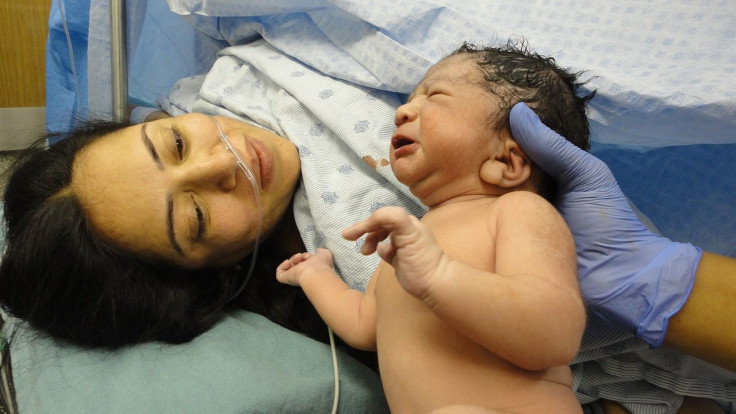Are C-Sections Causing Neuropsychiatric Disorders In Children? New Study Gives The Answer

Cesarean or C-section delivery might cause neuropsychiatric disorders in children, according to a global study. It stated that this delivery procedure might increase the risk of autism and attention-deficit/hyperactivity disorder (ADHD) in kids.
There is a rapid rise in cesarean delivery rates worldwide. C-section delivery rates “have seen a more than 3-fold increase, from approximately 6% in 1990 to 21% in 2015, with substantial variations among and within countries in the last three decades”, the researchers noted.
So, the lead researcher, Tianyang Zhang from the Karolinska Institute in Stockholm, and team decided to analysis the various risk factors associated with cesarean delivery. The research, published in the medical journal JAMA Network Open on Wednesday, focused on the association between cesarean delivery and the risk of psychiatric as well as neurodevelopmental disorders in children.
For the study, the team analyzed the results of 61 studies on deliveries that were conducted in 19 countries. During the analysis of 20,607,935 deliveries, they found out the babies born by c-section delivery had an increased risk of neuropsychiatric disorders.
Children born through cesarean section had a 33 percent higher risk of developing autism and 17 percent increased risk of developing attention-deficit/hyperactivity disorder (ADHD) compared to the kids born through vaginal delivery, the researchers stated.
However, the authors of the study were unable to find a direct link between c-section deliveries and neuropsychiatric disorders. According to the research team, several health problems that can lead to a cesarean delivery might have impacted the brain development of a child.
“Our study does not provide irrefutable proof that C-sections CAUSE neuropsychiatric disorders. C-section is often recommended by obstetricians if the mother has diseases such as diabetes, hypertension, etc. Some of the diseases might already have an effect on a child’s brain development when he or she is still in the womb,” lead researcher Zhang told Reuters.
The researcher also said it would not be right to “demonize C-sections. C-sections should continue to be used when medically necessary”. “The results appear to further add to the known adverse health outcomes associated with cesarean delivery and suggest judicious use of cesarean delivery,” they stated.
The researchers concluded the study by suggesting follow-up studies to get a clear picture of the risk factors associated with c-section deliveries.
“The findings suggest that cesarean delivery births are associated with an increased risk of autism spectrum disorder and attention-deficit/hyperactivity disorder, irrespective of cesarean delivery modality, compared with vaginal delivery,” the research team noted.
© Copyright IBTimes 2024. All rights reserved.





















